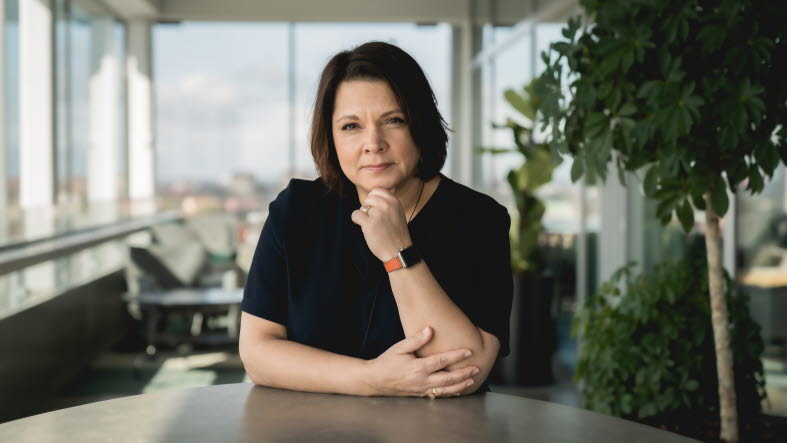As Deputy CEO of SEB’s fund management company and with many years of experience in the financial industry, Elisabet Jamal Bergström sees a great need for even more women to get involved in the financial economy.
With responsibility for corporate governance and sustainability at SEB Funds AB, Elisabet Jamal Bergström, who is also the fund management company’s deputy CEO, is a strong driving force on both sustainability and equality issues. She believes that these are two issues that to a great extent are interrelated and share a lot in common.
"In both cases, it’s about achieving something that’s good for the company, for the individual and for society at large."
After 30 years in the financial industry, and the last 15 years with a focus on sustainability, Elisabet Jamal Bergström has also experienced that sustainability issues, and not least greater equality, are a long-term initiative. And often also too long-term.
"Yes, even though things are moving forward, this is unfortunately not as quickly as one might wish. This is probably the biggest challenge in this work."
As one of the major fund management companies, how are you working to increase equality?
" As mentioned, we're a major player, and for several companies, we're among the largest owners, which gives us a seat on the nomination committee. In other words, we have a great influence on the composition of the board of directors, including the gender equality perspective."
Have you seen any concrete results from this particular work?
"Definitely. Last year, we participated in 35 nomination committees, and after the AGMs, the boards of these companies had an average female membership ratio of 40.5 per cent. This was an upturn from the previous year, and also clearly exceeds the average for all companies on the Stockholm Stock Exchange. Prior to this year’s AGMs, we are a member of 40 nomination committees."
Is it also good for the companies to have more women on their boards?
" Surveys show that companies with more equal board representation, and which also have more equality in terms of, for example, remuneration, achieve higher returns. For me as an investor, this is very important. This is one of the reasons why this work must continue. We can now also see more women in middle management, not least in the financial sector. Unfortunately, there is still a shortage of women in executive management positions. In this case, progress is slower."
Do you think there should be quotas to get more women onto company boards?
"No, I think recruitment should be based on qualifications. Although these qualifications can naturally be defined in a more inclusive way."
Equal opportunity is primarily about women owning more. How important is that?
"It's very important. This is about women and men having the same opportunities to build up savings and own both financial and tangible assets. This is not the case today, and it means that women have less independence when it comes to their finances."
Why do you think this is?
"To a very great extent, this is related to women still having lower pay, generally speaking. Lower pay levels result in lower savings. It can also be a question of interest. However, increased savings opportunities will generate more interest, and higher salaries will expand those opportunities."
What do you hope the work for Equal Opportunities will primarily lead to?
"I would like to see more women with savings in our funds, and that they also save more."



